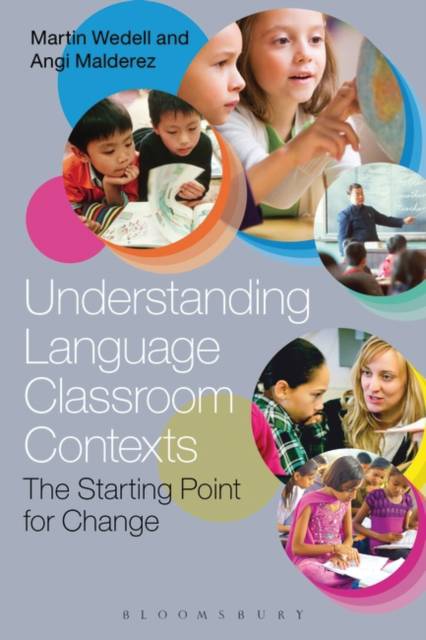
- Retrait gratuit dans votre magasin Club
- 7.000.000 titres dans notre catalogue
- Payer en toute sécurité
- Toujours un magasin près de chez vous
- Retrait gratuit dans votre magasin Club
- 7.000.0000 titres dans notre catalogue
- Payer en toute sécurité
- Toujours un magasin près de chez vous
Understanding Language Classroom Contexts
The Starting Point for Change
Martin Wedell, Angi Malderez
Livre relié | Anglais
296,95 €
+ 593 points
Format
Description
Arguably the whole point of education is to effect change in what people know and are able to do. Globalization has contributed to a common perception worldwide of the need to introduce changes to the teaching and learning of languages. The success of many attempts to do so has been limited by insufficient consideration of implementation contexts. Understanding Language Classroom Contexts explores and illustrates how what happens in any (language) classroom is influenced by (and can be an influence on) the contexts in which it is situated. A clear understanding of these influences is thus the starting point for planning effective change. The book considers many visible and invisible features of the multiple layers of any context, and provides a framework for understanding the types of factors that may influence whether changes (planned by a teacher or externally initiated) are likely to be successful. The book will help teachers (and educational managers or change planners outside the classroom) to understand why their classrooms are as they are and so to make informed decisions about what can or cannot (or not easily) be changed, and suggests how any changes might be appropriately managed.
Spécifications
Parties prenantes
- Auteur(s) :
- Editeur:
Contenu
- Nombre de pages :
- 248
- Langue:
- Anglais
Caractéristiques
- EAN:
- 9781441198372
- Date de parution :
- 06-06-13
- Format:
- Livre relié
- Format numérique:
- Genaaid
- Dimensions :
- 160 mm x 241 mm
- Poids :
- 498 g

Les avis
Nous publions uniquement les avis qui respectent les conditions requises. Consultez nos conditions pour les avis.






